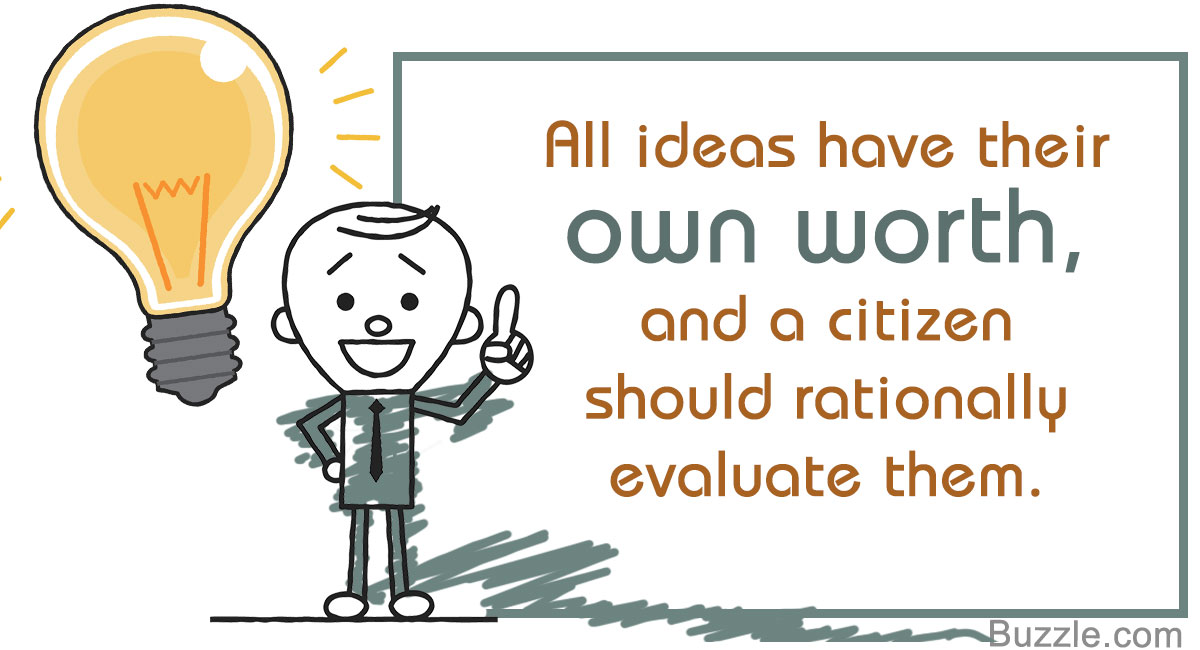Eight Values of Free Expression- Marketplace of ideas
The term "marketplace of ideas" is commonly traced back to a man named John Milton in his writing the Areopagitica. John Milton was an English poet and historian.
Milton was born on December 9th, 1608 in London. He graduated from Christ Church College in Cambridge having learned Latin, Greek, Italian, hebrew, French, and Spanish. After attending Milton wrote many things his most famous writing is known as Paradise lost.
Milton was very much a puritan and opposed all establishments of religion, including the Church of England and the monarchy. He wrote many pamphlets supporting the English civil war and was even put into jail for his role in the fall of Charles I, although he was later released due to his amount of supporters.
One pamphlet that was Milton's most controversial was called the Areopagitica in 1644. It is one of the first known written pleas for freedom of speech. The Areopagitica argued against the censorship of books before they are released to the public. Milton's entire argument in Areopagitica is that writers or anyone should be trusted with their own ideas and put them out for the public to see without censorship first.
The name Areopagitica comes from the greek word Areopagus, which is a hill in Athens where the Council of Athens met. He decide to write this pamphlet because he was tired of seeing people be flogged and whipped for their writings and wanted to put an end to it. Although the Areopagitica had little change on owner censorship, it was till years later that the laws relaxed.
"Marketplace of ideas" is intended to explain freedom of speech in production. That is what Milton was doing with his pamphlets. He wanted people to be able to express whatever they wanted in whatever form they wanted. That is why the first idea of "marketplace of ideas" is known to have started with Milton.
Although Milton never used the exact term of "marketplace of ideas" Milton said "Let truth and falsehood grapple;who ever knew Truth put to the worse, in a free and open encounter?" Many people believe(scholars/researchers) take that line to achieve the goal of an open information outlet, there needs to be a system where people can say their thoughts without being censored. That is where the idea of free speech comes into play here also and what people should and should not know.
One case of "marketplace of ideas" is seen in the Abrams v. United States. Abrams v. United States is a case where immigrants in the United States passed out pamphlets to people. The immigrants were convicted for condemning the United States intervention in Russia. The primary holding of the case was that the First Amendment cannot be used when condemning the United States in reference to war by feuling sedition and disorder.
Although this case did not rule in favor of the plaintiff one justice argued that " The best test of truth is the power of the thought to get itself accepted in the competition of the market, and he truth is the only ground upon which their wishes safely can be carried out."
So when discussing "marketplace of ideas" when it comes to the government one has to decide. Do people have the right to know everything even if it may cause mass chaos. Or is it a better idea to not let the people/citizens know to protect them from the truth.

Comments
Post a Comment